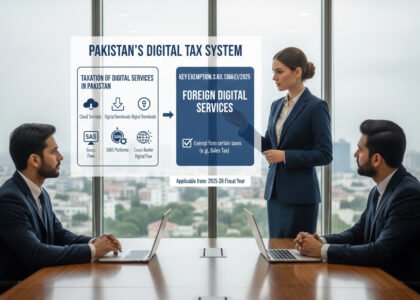SRO 1366(I)/2025 — Complete Guide to the Exemption on Digital Presence Proceeds Tax (With Practical Examples)
On 10 July 2025, the Federal Board of Revenue (FBR) issued SRO 1366(I)/2025 under Section


On 10 July 2025, the Federal Board of Revenue (FBR) issued SRO 1366(I)/2025 under Section

Real estate continues to be one of Pakistan’s most active investment sectors, but it is


Receiving an Income Tax Notice from the Federal Board of Revenue (FBR) can be stressful

Whether you are an individual taxpayer, a business owner, or part of a corporate structure,